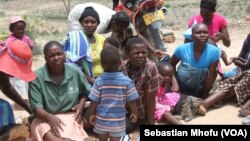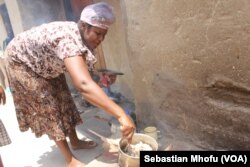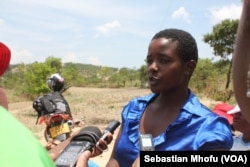In Zimbabwe, the U.N. Food and Agriculture Organization is working to tackle widespread malnutrition in children following reports that one-third of the population has stunted growth.
In Mutare West, a district about 400 kilometers southeast of Harare, children play as a group of women cooks. The women are part of FAO's Livelihoods and Food Security Program, which is funded by Britain and aims to improve nutrition and income security for small-scale farmers in eight districts.
The need in Mutare West is staggering, with 47 percent of children in the area suffering from stunted growth, according to a recent Zimbabwean government survey.
"Stunting here is attributable to feeding practices that are inherent in the society, as well as health and hygiene issues,” said district nutrition officer Memory Gavheta, who works for a non-governmental organization under the FAO project. “And then there is the infant feeding practices, as well. That is what we are trying to target. We are teaching them good feeding practices for their children, as well as sanitation practices."
Stunted growth in a child is usually caused by a lack of nutritious food. And that does not bode well for the kids of Zimbabwe, where el Nino weather patterns are expected to cause either floods or drought that could lead to food shortages.
More than 1.3 million Zimbabweans will need food handouts between now and March, when the harvest season begins, according to FAO.
But the group is hoping to improve the odds.
Emily Maganyati’s children are benefiting from the FAO program.
"We were not aware of the importance of health foods until we were trained,” she said. “We now know what nutritious food is for our kids. We were taught how to deal with malnutrition. ... Now the entire community knows about health eating habits."
The government appears optimistic, as well.
President Robert Mugabe said over the weekend that Zimbabwe had enough maize, the country's staple crop, to last at least another 10 months, and that Finance Minister Patrick Chinamasa would import additional maize to get the country into 2017.






